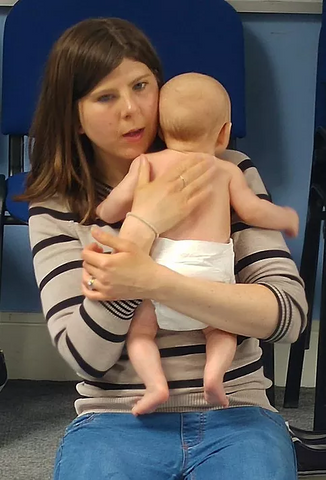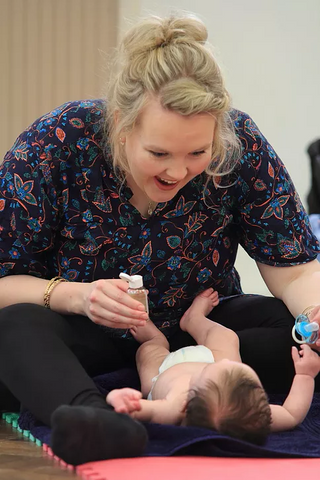Oxytocin
Becoming attached with your baby is a chemical process and the main hormone required is oxytocin or as some would call it, the “love hormone.”
Babies are completely reliant on their parents; they need to be provided with food, shelter, warmth and love. It is essential that an adult loves their offspring enough to provide these things for them; if they don’t evoke enough love then they cannot survive. Luckily these helpless mini humans have got one thing perfectly precise; the art of being loved.
What is Oxytocin?
Oxytocin is the chemical released in our brains when we experience positive interactions with each other and the more physically close we get to another person the more is released. This social chemical has great benefits for physical and mental health regardless of your age or life stage. These include lowering heart rate, lowering blood pressure and artery repair.
The mother and baby relationship is fueled by oxytocin. The receptors in a pregnant woman’s brain increases and it is the hormone that actually starts the labor process. After birth oxytocin surges allowing mum and baby to bond by imprinting on each other’s smell.

Facing challenges
The bonding process isn’t always simple though and some don’t immediately feel this surge. This is perfectly normal and as oxytocin continues to be at a raised level for more than two months there are plenty of opportunities to make the most of this special time.
There are potentially some very difficult moments with small humans. It is natural for babies to cry but sometimes figuring out what they need and managing it can be challenging. Oxytocin is a calming hormone, so finding ways to encourage its production is good for both mum and baby.
Who is oxytocin good for?
When mum has high levels of oxytocin she will feel a strong bond with her baby and also everyone else around her. Research shows that mums are more tolerant, patient and kind when the love hormone is prevalent in their system.
The love hormone is very good for babies; studies have shown connections between the amount of oxytocin released when an infant and the ability to handle stress as an adult. The love hormone allows the baby to feel loved and cared for, this feeling of security lasts long past the infant days.
Oxytocin is not just for mums though, men also benefit. Fathers who have a lot of contact with their partner will experience the level of the love hormone rise at the end of the pregnancy. Once the little one is born, the more time dads spends with them the more oxytocin is released. The hormone can also encourage bonding between mum and dad, as well as between parent and child, which is valuable for cementing a secure family life.
How to encourage more oxytocin
As mentioned above the closer the physical contact the more of the love hormone is released. This is why skin to skin contact is recommended, especially in those early weeks. The simple process of sharing positive touch with your baby can have an incredible effect on their development.
Skin to skin contact continues to be important as your baby grows older but the days of having the luxury to lie around just cuddling seem to pass by all too quickly. So how can we give ourselves and our baby’s new and fun opportunities for close contact? One great way is through massage.

How can massage help?
For even the youngest babies, a massage routine, either at bedtime or at a time that suits you both during the day is an ideal way to encourage and enjoy that close contact.
Tiddely pom offer DVD’s and music for your use at home or you could sign up with a local course like Tots Play . They offer a course especially for younger babies where you can learn a full massage routine, plus many other ways to play, connect and support your baby’s development. They also run weekly classes, where you have the opportunity to learn more ways to share positive touch with your baby as they grow, through yoga and stretching, massage strokes adapted for older ones and lots of interactive games and activities.
Through the positive touch of massage, or simply playing, singing and laughing along with your little one, the oxytocin levels in both of you will rise, leading to feelings of happiness, calm and love.
